Home >Backend Development >PHP Problem >How to modify the root directory in php
How to modify the root directory of php: First click the wamp icon, select the file [Apache→httpd-vhosts.conf] in order; then search for [Menu.Left] to modify the root directory in the Wamp menu; finally browse Just access the file in the server to test.
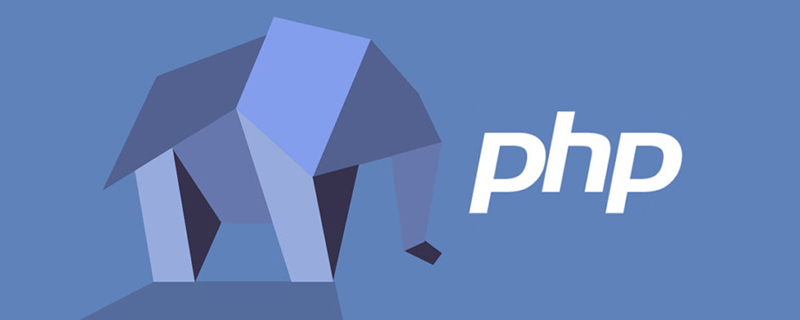
How to modify the root directory of php:
1. Click the wamp icon and select Apache→ httpd.conf
As shown in the figure below, modify the content in the circle to a new folder
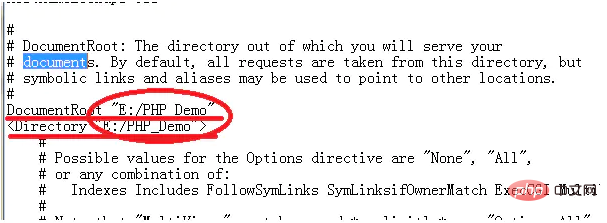
2. Click wamp icon, select the Apache→httpd-vhosts.conf file
As shown below, the same as the previous step
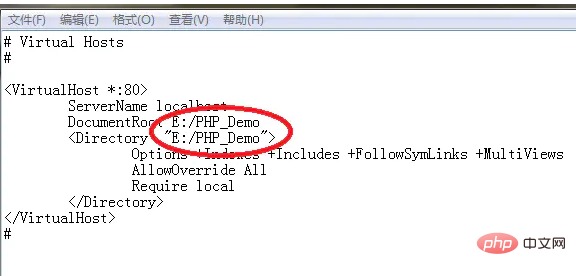
##3. Modify the root directory in the Wamp menu
When we make the above modifications, we will find that the www directory in the Wamp menu will still point to the original directory, so we have to continue to modify itFind two files in the root directory of Wamp: wampmanager.tpl and wampmanager.ini3.1 Modify wampmanager.iniOpen the file in text mode, Ctrl F to findMenu. Left
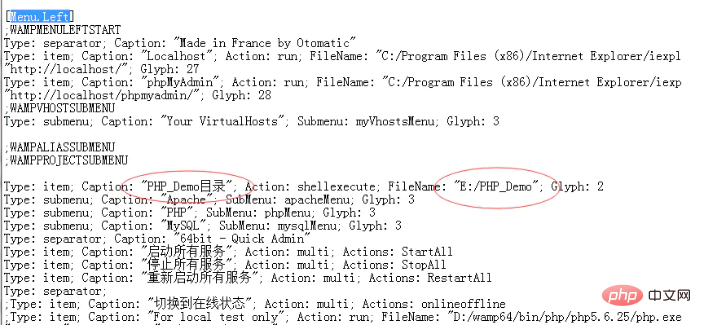
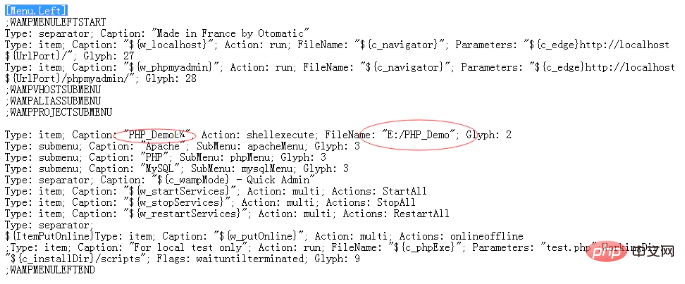
4. Test
Create a new text file in the set location and write the PHP code. After saving, change the suffix to php.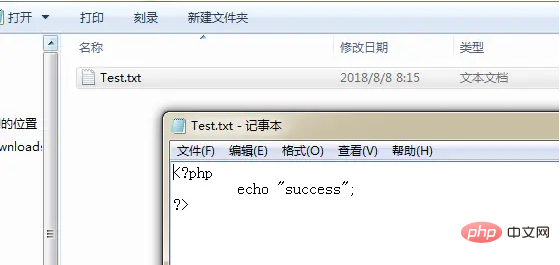
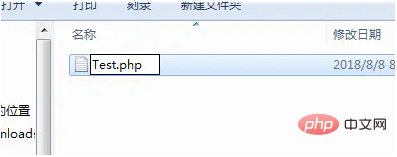

Related learning recommendations:
The above is the detailed content of How to modify the root directory in php. For more information, please follow other related articles on the PHP Chinese website!